 |
 |
MARIANA VASSILEVA
Mariana Vassileva was born in Bulgaria in 1964. Since graduating from the Universität der Künste in 2000, Vassileva continues to live and work in Berlin. Working across varied mediums such as video, sculpture, installation, and drawing, Vassileva’s practice is concerned with the poetry that lies beneath the quotidian and the routine. Based upon observation of daily life, her works respond to an element of playfulness inherent in artist and viewer alike. With the curious gaze of a voyeur or of an urban anthropologist, the artist observes people and their surroundings in order to capture a moment of poetic imagery. Watching, and the distance it implies, are both method and subject of a body of work reflecting on human concerns familiar to us all: communication, cultural displacement, relations with self and other, loneliness and the humor hidden within the rhythms of the day-to-day. As her artist’s statement asserts, she “transforms objects, situations and manners, and presents them in another reference on a lyrical level. … In this process, one is animated toward a heightened sensibility of daily variations.”
Mariana Vassileva is an an internationally acclaimed interdisciplinary artist, having shown in major institutions including: Musée d’Art Contemporain de Montréal (Canada); Tate Britain (UK); Centre Pompidou (Paris, France); Museo Nacional Centro de Arte Reina Sofía (Spain); Museum of Fine Arts (Boston, USA); The Israel Museum (Jerusalem); Kunstmuseum Wolfsburg (Wolfsburg, Germany); Weserburg Museum für Moderne Kunst (Germany); Kunsthalle zu Kiel (Germany); Edition Block (Berlin, Germany); The Stenersen Museum (Oslo,Norway); Total Museum (Seoul, Korea); Hong Kong Arts Centre (Hong Kong).
Mariana Vassileva has participated in several international Biennials, including: the 1st Biennal del Fin del Mundo, Ushuaia, Tierra del Fuego, Argentina (2007); the 17th Biennale of Sydney, The Beauty and the Distance: Songs of Survival in a Precarious Age (Australia, 2010); the 4th Moscow Biennale of Contemporary Art, Rewriting Worlds (Russia, 2011); Biennale Vento Sul in Curitiba, (Brasil, 2012); the 56th October Salon, Belgrade Biennale, The Pleasure of Love, (Serbia, 2016). Vassileva’s works are held in international Collections in: Kunstmuseum Wolfsburg (Wolfsburg, Germany); Rene Block Collection (Berlin, Germany); Koc Museum (Istanbul, Turkey); The Israel Museum (Jerusalem, Israel); La Caixa, Caja de Ahorros de El Monte y Fundacion el Monte (Spain); Lemaitre Collection (London-Paris); Kunsthalle Emden (Germany); Lidice Memorial, and in private collections.
MORNING MOOD
2010, Video, 17 min 10 sec
Morning Mood (2010) was shot in the Sydney Botanical Gardens, at the time of Vassileva’s participation in the 17th Biennale of Sydney, The Beauty and the Distance: Songs of Survival in a Precarious Age (2010), and in MOMENTUM’s inaugural event in Sydney. The early morning routines of these bats as they resist the onset of the day and squabble with each other evoke the viewer’s potential for both differentiation and identification. Turning her camera to a creature perhaps more frequently associated with darker themes like blood and night, Vassileva captures the uncanny warmth of their morning moods.
A single bat burrowing his face in his wings and reluctantly stretching his neck is eminently relatable, as are the sounds and rhythms of many bats gathering on the branches of a tree. As the three and a half minute long video loops over and over, we confront not just the strange humanity of these bats’ morning routine, but also perhaps the very animalistic qualities of our human routines. – Jenny Tang
THE COLOR OF THE WIND
2014, Video, 4 min 15 sec
The Color of the Wind (2014) was made during Mariana Vassileva’s residency at the National Centre for Contemporary Art (NCCA) in St. Petersburgh / Kronstadt, Russia, in March, 2014. In this video-performance, Vassileva conjoins the motif of a blank canvas and her own, human figure, traversing the urban and natural landscapes of Kronstadt – St. Petersburgh’s main sea port and century-old army town. As a historical site for political struggle, to which Kronstadt’s famous fortifications unrelentingly attest, we now wonder what it is that is being fought for in Vassileva’s act of silent protest.
“Why did you not write anything on the banner?”, people on the street asked her. Be it an act of empathy and concern within the context of Russia’s current cultural climate of censorship and infringement of freedom of expression, or an invitation for people to consider for themselves what it is that should be written on it, Vassileva’s poetic visual language captivates the viewer, as we are addressed in a narrative mode, while never granting us the comfort to passively sit back and read.
Watch here the Spotlight interview with Mariana Vassileva


 Back to Index
Back to Index